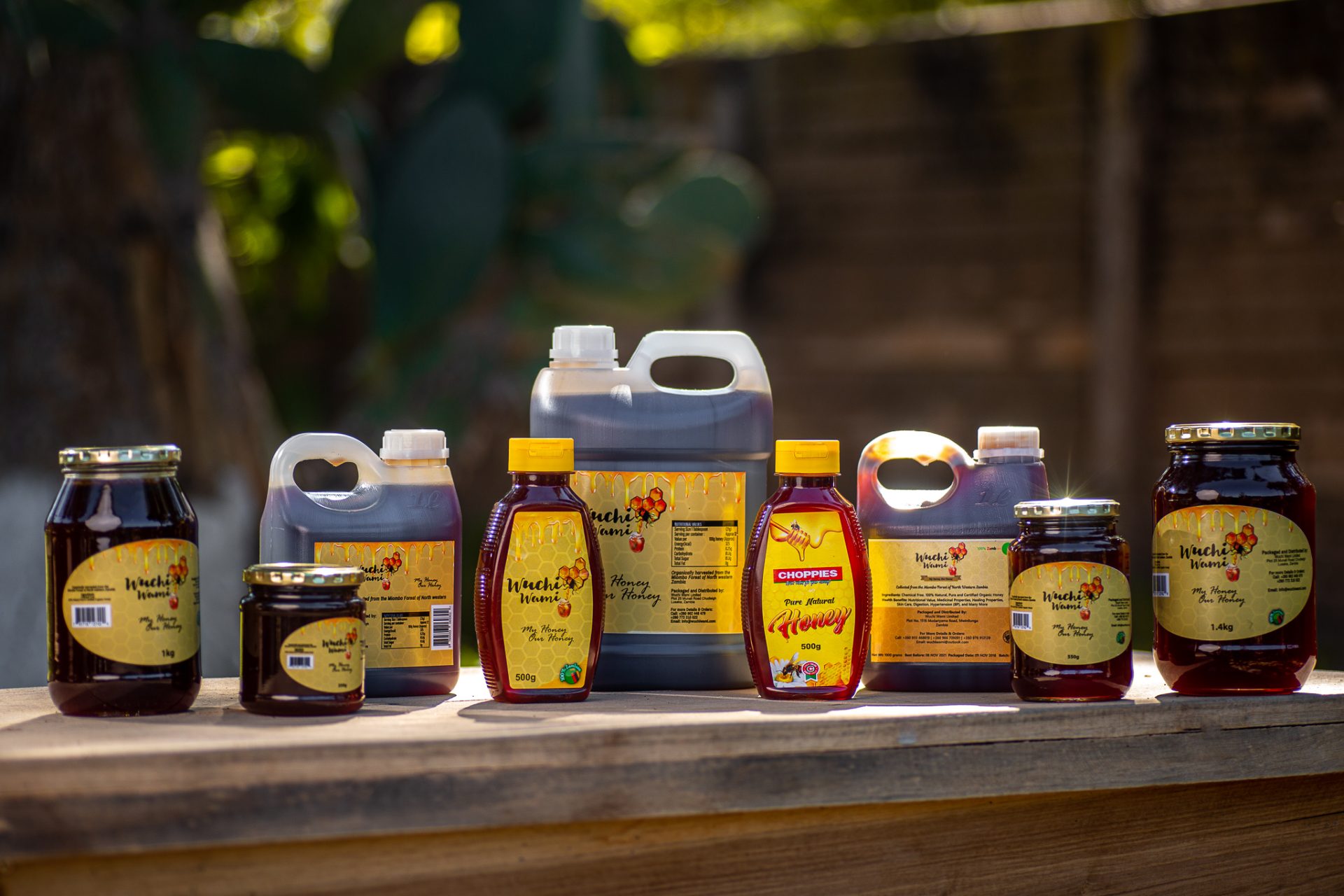Turning honey into international success, supporting over 1,300 farmers.
“Before meeting Prospero, we only had three (03) employees but as we speak, we are talking about 22 direct employees, forty-four (44) casuals, 1,301 beekeeping farmers and we are now able to export to four countries. This is a testament to sustainable partnerships that do not just give you the money but are realistic to also know your shortfalls and help you to build a business”.
Wuchi Wami is a Zambian private limited company that specializes in offering sustainable beekeeping trainings to farmers and processing of organic honey and beeswax. The company has trained over 1,301 smallholder farmers in sustainable beekeeping practices causing a surge in productivity and environment protection.
In 2020, Wuchi Wami faced a major setback due to the outbreak of the COVID-19 pandemic, which left it on the verge of shutting down. In recognition of the potentialities of the business, Prospero supported the enterprise with a COVID-19 relief grant worth £8,421.05 meant to help in sustaining jobs, maintaining operations, and ensuring the company’s survival during the challenging period. furthermore, Prospero provided technical support, through consultancy, to equip the team with expert knowledge and skills in change management, enabling them to enhance operational efficiency and building resilience during the pandemic.
Our collaboration with Wuchi Wami further secured an International Climate Fund concessional loan of £88,000. This significant investment allowed the company to scale up its operations by acquiring a spacious and modern production plant, employing professional staff and increasing its production capacity.
The company has grown remarkably providing employment to 22 full-time and 44 casual employees from three (03) full-time staff in 2020. The establishment has also expanded its honey-sourcing capacity from Mwinilunga’s Miombo forest to include areas in Kasempa, Kalumbila, Mushindamo and Ikeleng’i districts through its ‘Kwasha Indimi’ cooperative initiative. The initiative has seen the number of smallholder beekeeping farmers increase from 10 in 2020 to more than 1,301 currently, with over 10,520 modern top-bar beehives being distributed, producing over 500,000 kilograms of comb honey annually. The expansion has greatly uplifted the livelihoods of local communities and women while enabling Wuchi Wami to service the local honey demand as well as penetrating the international markets; exporting processed honey to Norway, Botswana, Namibia and Zimbabwe.

